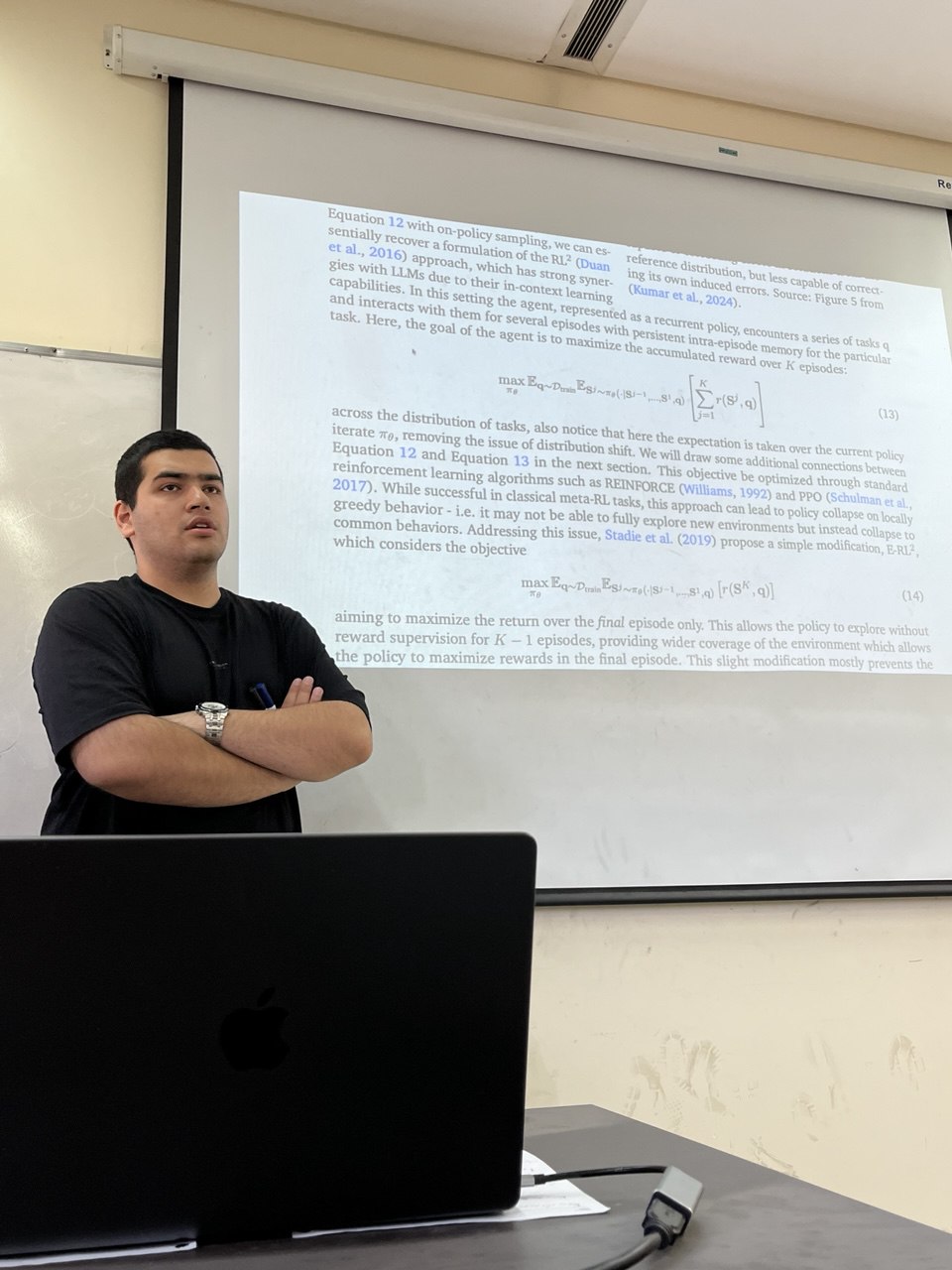Amir Mohammad Sharafaddini
I’m Amir Mohammad Sharafaddini—curious about deep learning and NLP. I value clean experiments, reproducible results, and readable code. My recent work focuses on model alignment, reinforcement learning from human/AI feedback, and methods to enhance reasoning and reliability. I also explore representation learning, robustness, and efficient training/inference to make models faster, more affordable, and more accurate. Additionally, I work extensively with large language models—pretraining and fine-tuning, retrieval-augmented generation, tool use/agents, and interpretability—and I’m actively researching in these areas.

Professional Journey
- B.Sc. in Computer Science
- Neural Networks: 20/20 (4/4)
- Data Mining: 20/20 (4/4)
- Topics in Computer Science: 20/20 (4/4)
- Data Structures and Algorithms: 19.75/20 (4/4)
- Design and Analysis of Algorithms: 20/20 (4/4)
- Combinatorics: 19.75/20 (4/4)
- Genetic Algorithms: 20/20 (4/4)
- Served as Research Assistant under the supervision of Dr. Najme Mansouri.
- (Spring 2025) Fundamentals of Programming (Python), Dr. Marzieh Sadri
- (Fall 2025) Machine Learning, Dr. Ali Sharifi–Zarchi
- (Fall 2025) Fundamentals of Programming (Python), Dr. Mohammad Nazari
- (Fall 2023) Advanced Programming (C++), Dr. Behnam Mohammad Hassani Zadeh
- (Fall 2023) Fundamentals of Programming (Pascal), Dr. Mohammad Masoud Javidi
- (Fall 2023) Topics in Data Science (Graduate Course), Dr. Najme Mansouri
- (Spring 2024) Advanced Programming (C++), Dr. Aboozar Zandvakili
- (Spring 2024) Topics in Soft Computing and Artificial Intelligence (Graduate Course), Dr. Najme Mansouri
- (Fall 2024) Advanced Programming (C++), Dr. Behnam Mohammad Hassani Zadeh
- (Fall 2024) Data Mining (Graduate Course), Dr. Najme Mansouri
- (Fall 2024) Topics in Data Science (Graduate Course), Dr. Najme Mansouri
- (Spring 2025) Advanced Programming (Python), Dr. Reyhane Ghafari
- (Spring 2025) Data Structures and Algorithms, Dr. Najme Mansouri
- (Spring 2025) Data Science Algorithms, Dr. Najme Mansouri
- (Fall 2025) Topics in Data Science (Graduate Course), Dr. Najme Mansouri
- (Fall 2023) Organized and instructed a workshop on Python and Machine Learning for graduate students
- (Spring 2024) Organized and instructed a workshop on Deep Learning for graduate students
- Selected as Outstanding Undergraduate Researcher, Fundamental Sciences group, among universities in Kerman Province
Current Focus
- Improving adversarial robustness in visual anomaly detection across high-dimensional data spaces
- Enhancing factual consistency in abstractive summarization
- Increasing model explainability and interpretability for clinically fine-tuned LLMs
Published Papers
Papers Under Review
Revised manuscript under review
Latest Articles & Insights
Featured Projects
A deep reinforcement learning framework using Double Deep Q-Networks (DQN) to dynamically optimize traffic light timing. The system learns to reduce congestion and waiting time through environment feedback and adaptive decision-making.
A retrieval-augmented generation (RAG) system that integrates external document evidence with large language models to produce accurate and context-aware answers. It demonstrates how combining semantic search with generation improves factual reliability in AI systems.
A neural architecture search (NAS) project focused on designing compact convolutional neural networks (CNNs) with high performance and low computational cost. It automates architecture discovery for deployment on edge and mobile devices.